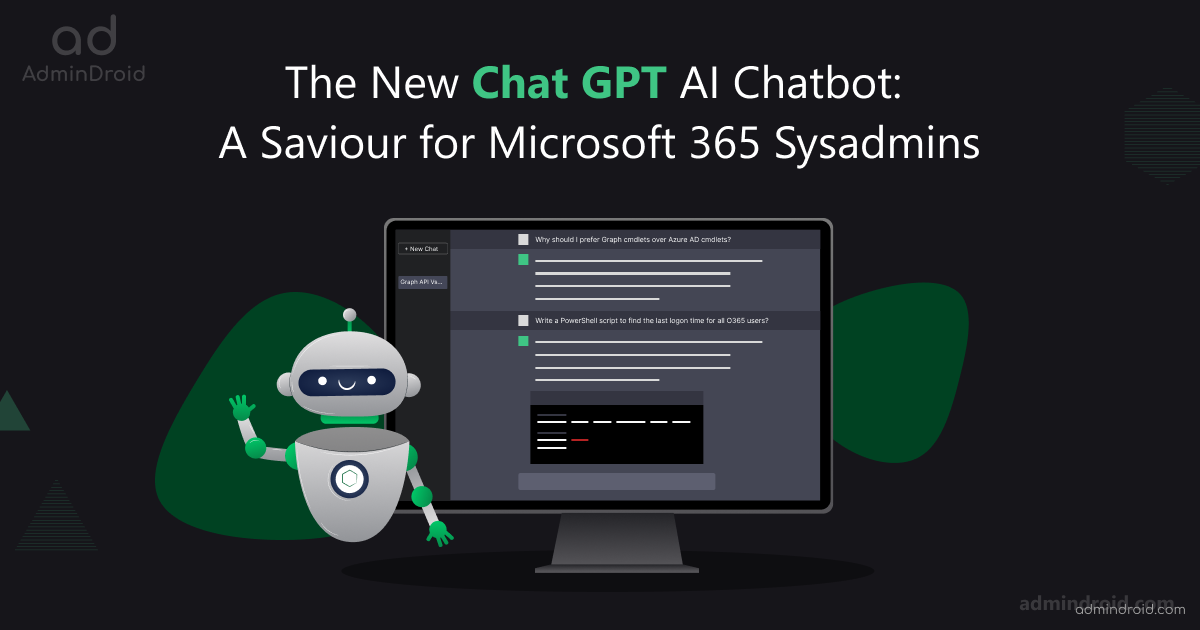

Gina Parnaby teaches 12 th grade English at an independent Catholic school in the Atlanta metro area. Another asks us how we should even regard ChatGPT: as an entity to be cited or a tool to be used? In a conversation of college professors, shared recently on YouTube, one asked us to consider how newer AI compares with the way students are already using Grammarly to write. When we see a student’s writing is rife with these distractions, might ChatGPT provide some quick, tailored, remedial instruction, opening our time to help students apply the skill? If I needed more, I could ask it a follow-up question.
#Chatbot ai gpt how to#
When we edit, can ChatGPT become a coach? When I asked it, “Can you explain what a comma splice is? Then give a few simple examples and show me how to fix them,” it did a phenomenal job of coaching me in this skill.

Will students who have struggled in the past to get those first thoughts down into writing benefit from a few strong AI sentences, trellises upon which to vine their original words and thinking? Will they be able to enjoy spending more time on the craftsmanship-ordering ideas, tweaking word choice, imbuing humor or irony or thoughtful similes-instead of the initial draft? Perhaps we will finally move more of our instructional time to that most important and most avoided stage of the writing process: revision. Now, students have two drafted answers, one purely from their brains, one grammatically precise and AI-generated. Next, they can submit their question to ChatGPT. Regarding AI assistance, I also wonder, might we invite AI into our process as we draft? For example, once those students create a worthy question that their reading of Long Way Down provokes, might they write a 10-minute draft in a notebook. ChatGPT could thereby create more in-class writing time with the teacher coaching and conferring rather than just preventing or policing AI assistance.
#Chatbot ai gpt free#
How much better if our classwork on paper involves questioning, free writing, sketching, and planning. While this eliminates ChatGPT cheating, it does not grow writers. These can be beneficial moves, unless we regress to lots of on-demand writing sessions where students get that “major theme” prompt at the opening bell and a single class period to create an essay for a grade. Many teachers are planning more writing for the classroom and more writing by hand. Excellent writing starts with questions, and my hope is that pervasive AI moves us away from teacher-created prompts and toward student inquiry. ChatGPT will not displace the root motive for writing: our human capacity for questioning. See, we can get a decent, accurate response from ChatGPT to an assigned prompt like “What is a major theme in the book Long Way Down?” In fact, when I asked it for one, it gave me two! How much better, though, to ask readers of this book to list five real-world topics it makes them think about-for example revenge, gun violence, and family-than create a question about each of those topics that the book provokes. Therefore, I will forge ahead.ĬhatGPT will be brutal in classrooms where writing is assigned rather than taught. I am paranoid that I may later eat these words, and my optimism was misplaced, about ChatGPT in K-12 classrooms, but to agonize over this topic is to use my head and my heart in a way that AI cannot yet. His book, Poetry Pauses, is available for preorder now and releases from Corwin Press in February:

Ally or Foe?īrett Vogelsinger teaches 9th grade English in Doylestown, Pa., where he begins class each day with a poem. Today, Brett Vogelsinger, Gina Parnaby, and TJ Wilson kick off the series. You might also be interested in The Best Posts On Education & ChatGPT.
#Chatbot ai gpt series#
Teachers will share their reflections in this series on how these kinds of AI tech developments might affect our classrooms. Using artificial intelligence, it could produce responses to prompts that were remarkably fluent and cogent and could pass muster as reasonable written responses to class assignments, among other tasks. How do you think artificial intelligence-powered tools like ChatGPT are going to affect K-12 schools, and what are practical strategies teachers can use to respond to them?ĬhatGPT took the world by storm last month when it was made available to the public. (This is the first post in a multipart series.)


 0 kommentar(er)
0 kommentar(er)
